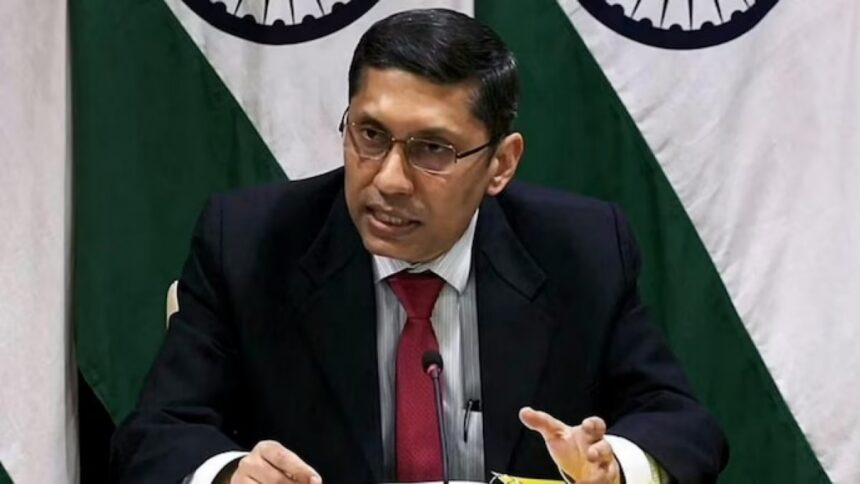India believes in its long-standing support for the establishment of a “sovereign, independent and viable” state of Palestine, Ministry of External Affairs spokesperson Arindam Bagchi said during a weekly press briefing on Thursday. He said New Delhi’s policy on the Israel-Palestine issue has been longstanding and consistent.
Also Read: Israel-Hamas war: Benjamin Netanyahu says Israel didn’t start this war but will finish it; equates Hamas with ISIS
“India always advocated the resumption of direct negotiations towards establishing a sovereign, independent, and viable state of Palestine, living within secure and recognised borders, side by side at peace with Israel. I think that position remains the same,” Bagchi said days after Prime Minister Narendra Modi condemned Hamas for its deadliest attack on Israel and said that New Delhi stood in solidarity with the Jewish state.
Also Read: ‘That’s why Netanyahu never wanted to go in’: Pulitzer winner Thomas L Friedman explains Israel’s big Gaza trouble
Hamas is a militant organisation which rules Gaza, a Palestinian enclave. It carried out a coordinated attack on Saturday, killing 1200-plus people and injuring nearly 3,000. Hamas also abducted 150 Israelis and it continues to hold them as hostages. In a retaliatory move, Israel has launched war and has been bombarding Gaza.
On Tuesday, Prime Minister Modi spoke to his Israeli counterpart Benjamin Netanyahu, and expressed his support for Israel. In a tweet, PM Modi said that Netanyahu called him and briefed him about the situation in Israel.
“I thank Prime Minister @netanyahu for his phone call and providing an update on the ongoing situation. People of India stand firmly with Israel in this difficult hour. India strongly and unequivocally condemns terrorism in all its forms and manifestations.”
Earlier on Monday, the Congress Working Committee (CWC) reiterated its long-standing support for the “rights of the Palestinian people to land, self-government, and to live with dignity and respect”. The CWC called for an immediate cease-fire and for negotiations to begin on all outstanding issues including the imperative issues that have given rise to the present conflict.








